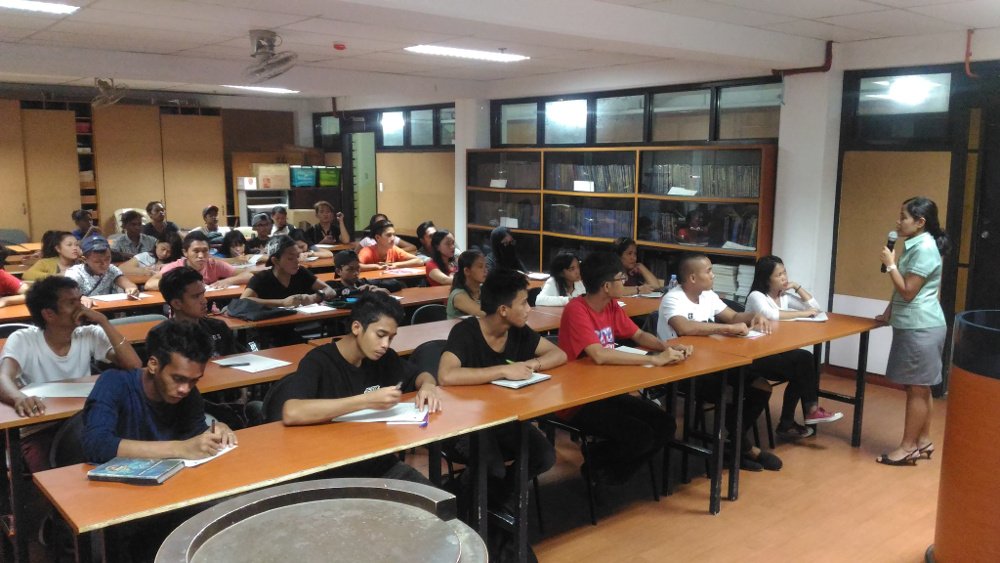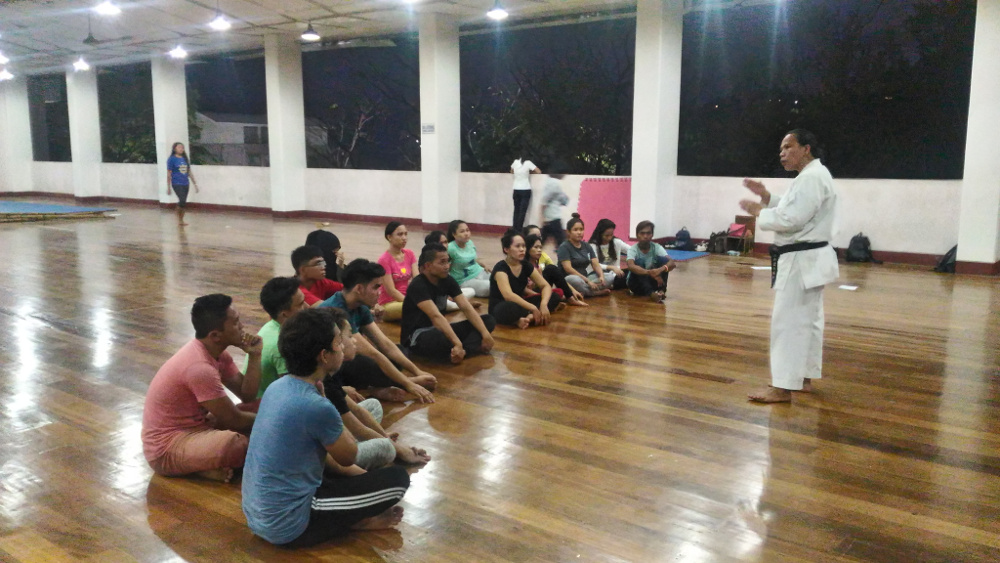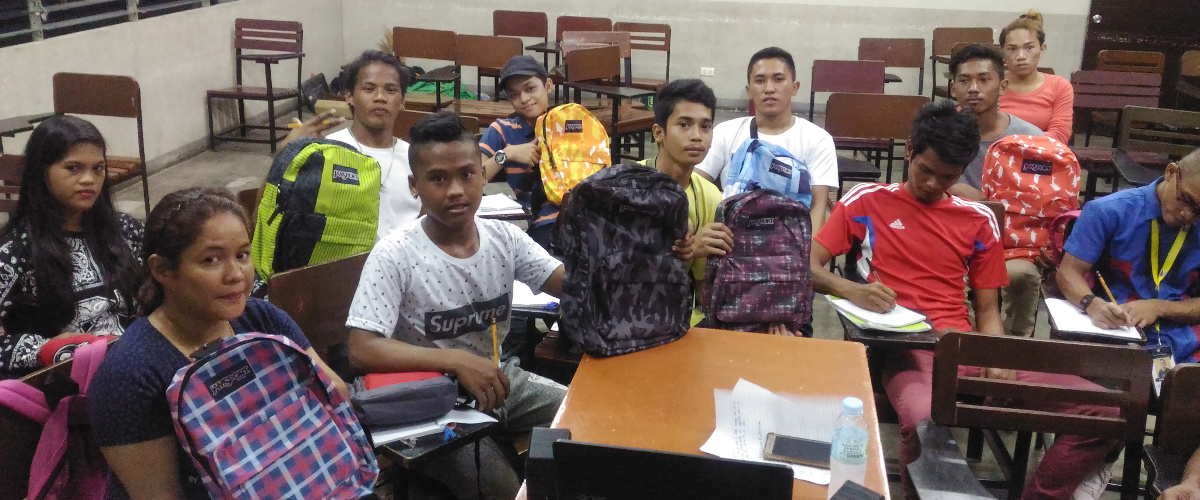Street children and out-of-school youth in Cagayan de Oro in the Philippines are getting an opportunity to finish their education thanks to an alternative school programme run by Xavier University, a Jesuit university in the city.
For 10 months, four times a week, children and youth aged between 13 and 35 who live on the streets attend free night classes at Xavier University, where volunteer teachers teach them English, Mathematics, Science and Filipino, and provide them with values formation. The City Social Welfare Department also provides counselling, particularly to those who come from broken families.
“Through holistic formation, we aim to bring our learners closer to God through Ignatian spirituality and discipline. We want them to learn how to be men and women for others,” said Xavier Ateneo Night School Program Coordinator Jerome Torres.

Today it is a project under the Arrupe Educational Center of the university’s School of Education, supported by the city government, non-government organisations namely Philippine Business for Education and Scholarships for Teacher Education Programs to Upgrade Teacher Quality in the Philippines, and Smart Communications.
The programme was officially recognised in September 2016 as one of the satellite centres of Northern Mindanao’s Department of Education – Alternative Learning System (DepEd-ALS). This year, it has 37 new learners.
Although it follows the DepEd module on alternative learning, the programme has added subjects on Ignatian spirituality and formation. The learners also have sessions on health, culture and arts, and personality development. Every first and second Thursday of the month, they attend theatre and music classes, while every third and fourth Thursday, they attend a karate class. They also have a computer literacy class, in which they are taught basic word and spreadsheet applications and how to use the Internet.
The most important qualifications to be accepted to the night school are eagerness and commitment to complete the programme. The night school has been instrumental in helping these young people prepare for the ALS Accreditation and Equivalency (A&E) exam, a paper and pencil test designed to measure the competencies of those who have neither attended nor finished elementary or secondary education in the formal school system. Those who pass receive a certificate that qualifies them to enrol in secondary and post-secondary schools.

“This programme is an expression that Xavier is not just for those who can afford. But it also caters to those who are in need, those who live on the street,” said Torres.
For those who failed the A&E test, Torres said that they nonetheless felt appreciated, empowered and had increased their knowledge. “The programme has provided them an opportunity to supplement their basic knowledge and ability and to boost their self-confidence.”
Torres said that they will continue to look for ways to improve the programme by building partnerships with different organisations, adding that they plan to invite other schools to set up ALS centres so that more out-of-school children and youth can have the opportunity to get an alternative education.







